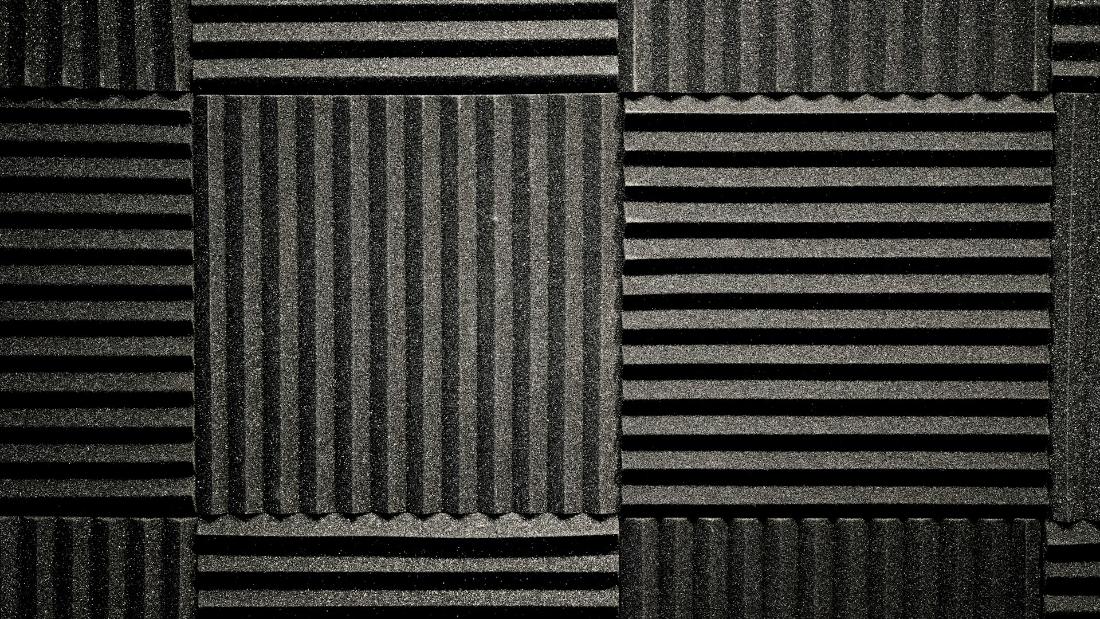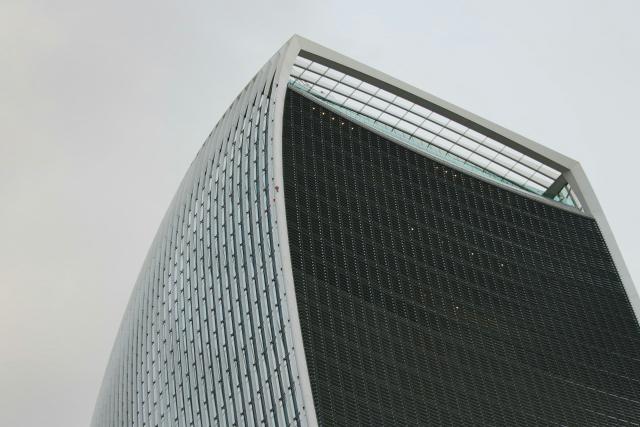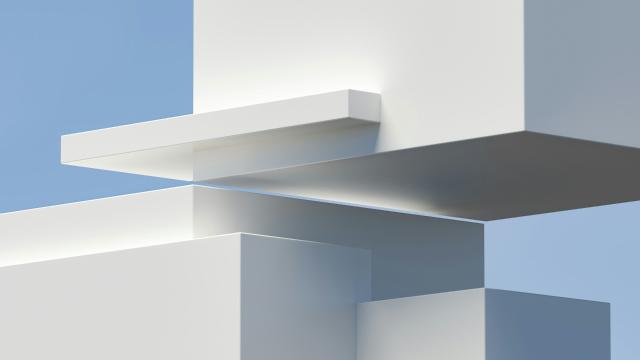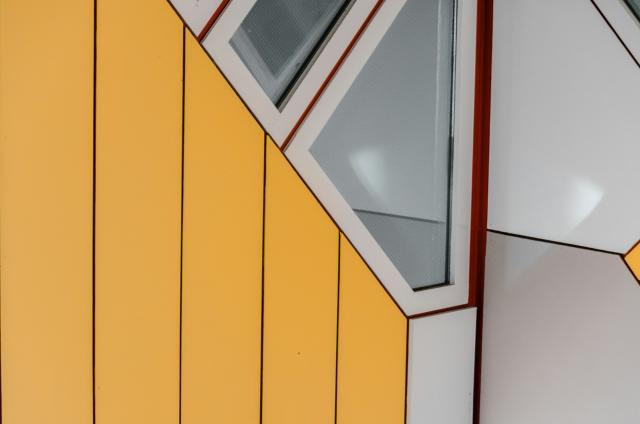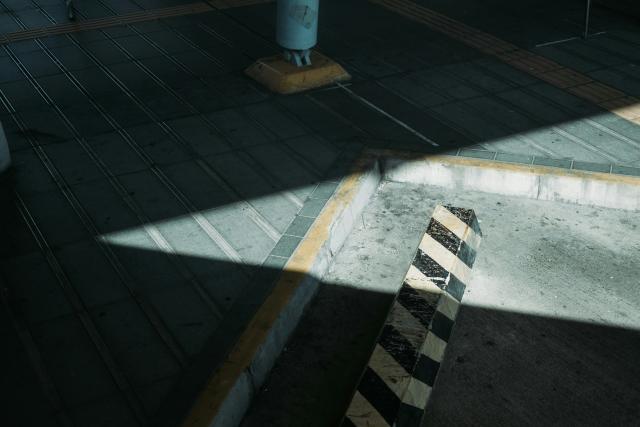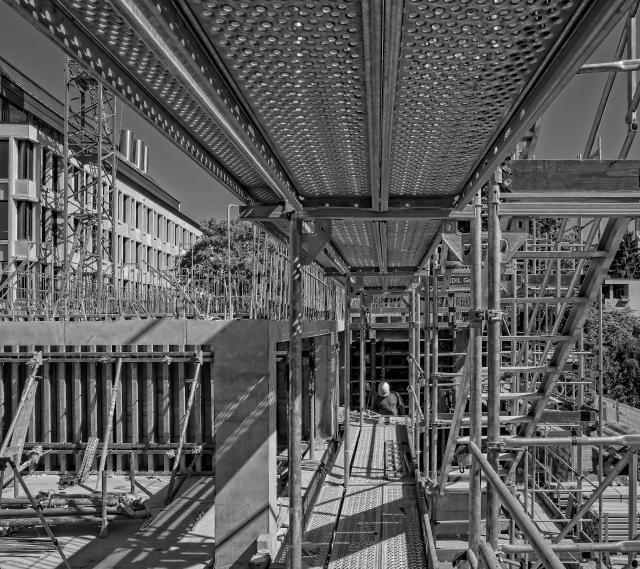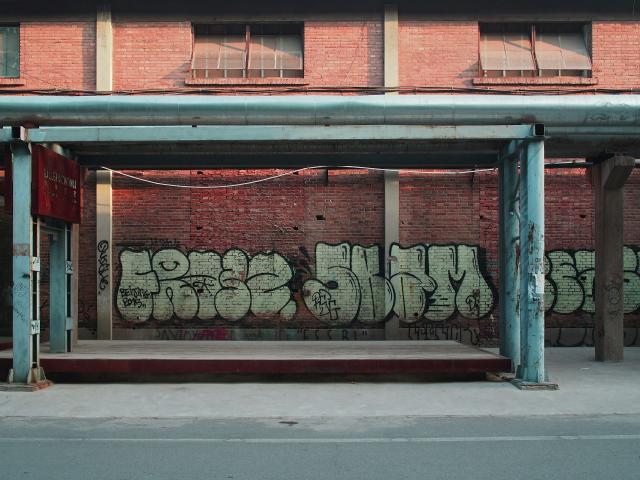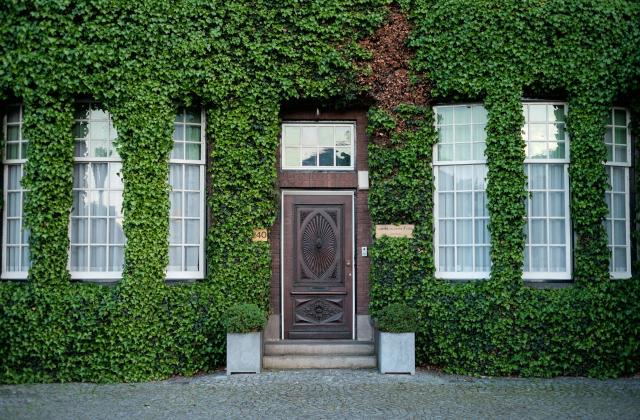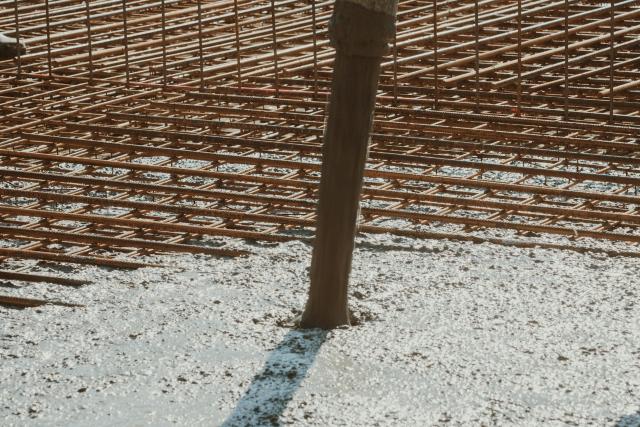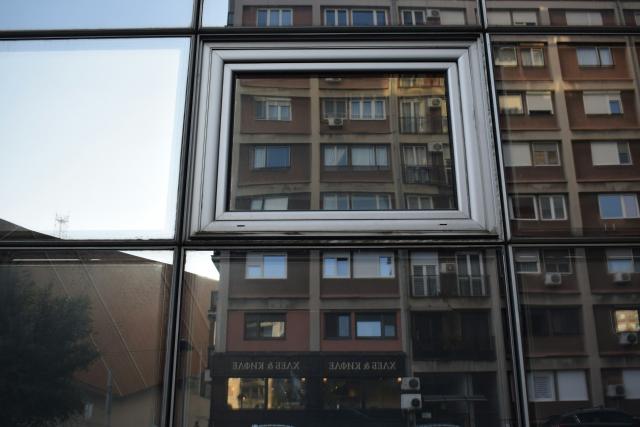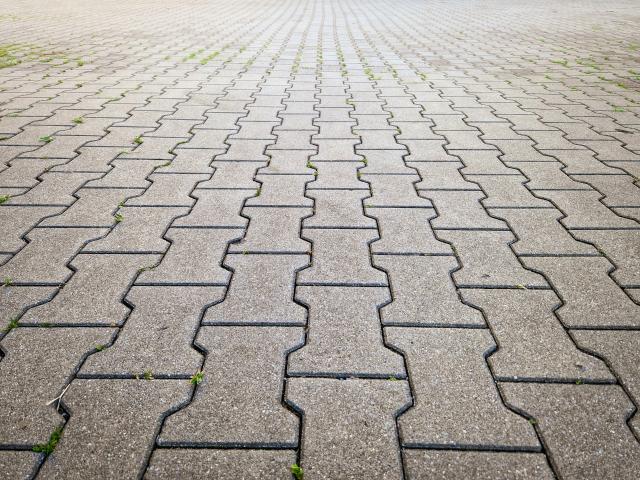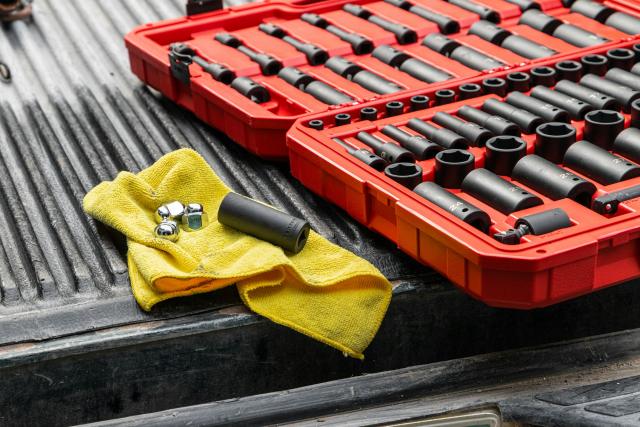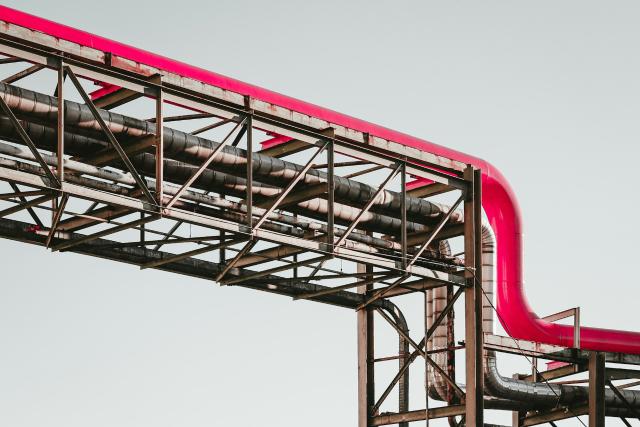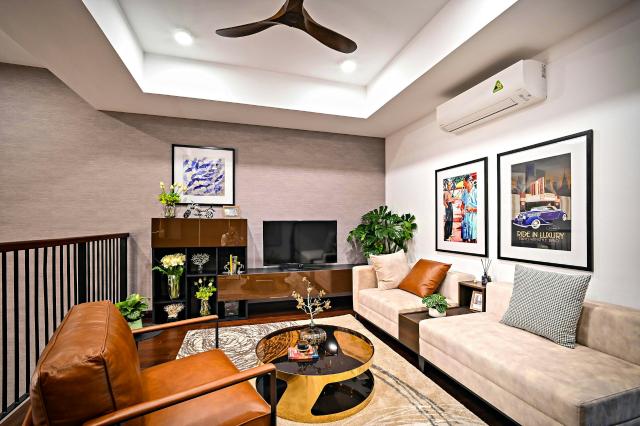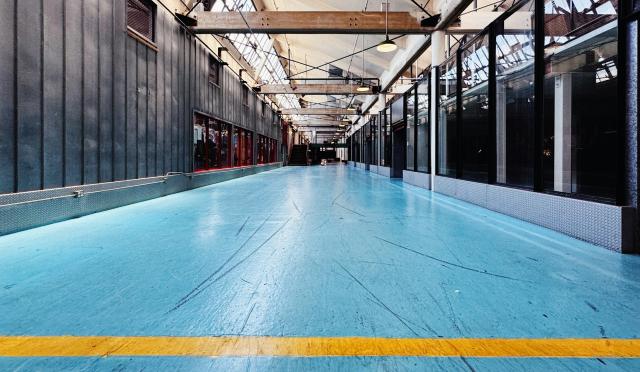Popular Ideas and Designs
Roof coating in industrial construction plays a very important role in terms of ensuring structural integrity, especially when considering harsh weather conditions in Malaysia.
Recently, a major heat reflective roof coating project for metal roof and gutter system in Senai was accomplished. The project highlights the advantages of this specially formulated roof Coating developed in Germany and examines how its impact enhances building efficiency.
Recently, a major heat reflective roof coating project for metal roof and gutter system in Senai was accomplished. The project highlights the advantages of this specially formulated roof Coating developed in Germany and examines how its impact enhances building efficiency.
The thunderous roar of water rushing through a hydroelectric dam never fails to inspire awe. I remember standing at the edge of the Bakun Dam in Sarawak, watching as millions of liters of water transformed into clean electricity, powering homes and industries across Malaysia. This remarkable feat of engineering doesn't happen by accident—it requires the expertise of skilled Hydro EPCC contractors in Malaysia who specialize in Engineering, Procurement, Construction, and Commissioning of hydropower projects. These unsung heroes of Malaysia's renewable energy sector combine technical mastery with on-the-ground problem-solving to turn rushing rivers into reliable power sources.
As Malaysia strives to meet its renewable energy targets, hydropower remains a cornerstone of the nation's clean energy strategy. The Sustainable Energy Development Authority (SEDA) estimates hydropower could provide up to 29% of Malaysia's electricity generation by 2035. But realizing this potential demands more than just abundant rainfall and mountainous terrain—it requires Hydro EPCC contractors who understand Malaysia's unique geological conditions, environmental considerations, and energy infrastructure needs. From massive dam projects to innovative small hydro systems, these specialists face challenges that test both their engineering skills and their ability to work in harmony with Malaysia's diverse ecosystems.
The Vital Role of Hydro EPCC Contractors
A Hydro EPCC contractor's responsibility extends far beyond pouring concrete for dams. They orchestrate complete turnkey solutions, managing everything from feasibility studies and environmental impact assessments to turbine installation and grid connection. This comprehensive approach ensures all components work together seamlessly—a crucial factor when dealing with complex hydroelectric systems designed to operate for half a century or more.
During a visit to the 30MW Ulu Jelai hydroelectric project in Pahang, the project manager explained how his team had to redesign the water intake system after discovering unexpected sediment patterns during construction. Their ability to adapt the engineering plans while maintaining project timelines demonstrated the true value of experienced Hydro EPCC professionals. Such on-the-fly problem solving is common in hydro projects, where each river and each terrain presents unique challenges that blueprints alone can't anticipate.
As Malaysia strives to meet its renewable energy targets, hydropower remains a cornerstone of the nation's clean energy strategy. The Sustainable Energy Development Authority (SEDA) estimates hydropower could provide up to 29% of Malaysia's electricity generation by 2035. But realizing this potential demands more than just abundant rainfall and mountainous terrain—it requires Hydro EPCC contractors who understand Malaysia's unique geological conditions, environmental considerations, and energy infrastructure needs. From massive dam projects to innovative small hydro systems, these specialists face challenges that test both their engineering skills and their ability to work in harmony with Malaysia's diverse ecosystems.
The Vital Role of Hydro EPCC Contractors
A Hydro EPCC contractor's responsibility extends far beyond pouring concrete for dams. They orchestrate complete turnkey solutions, managing everything from feasibility studies and environmental impact assessments to turbine installation and grid connection. This comprehensive approach ensures all components work together seamlessly—a crucial factor when dealing with complex hydroelectric systems designed to operate for half a century or more.
During a visit to the 30MW Ulu Jelai hydroelectric project in Pahang, the project manager explained how his team had to redesign the water intake system after discovering unexpected sediment patterns during construction. Their ability to adapt the engineering plans while maintaining project timelines demonstrated the true value of experienced Hydro EPCC professionals. Such on-the-fly problem solving is common in hydro projects, where each river and each terrain presents unique challenges that blueprints alone can't anticipate.
The first time I witnessed a solar farm coming to life was at dawn in Sepang, where rows of photovoltaic panels slowly awakened like sunflowers turning toward the morning light. As the site engineer from a leading solar EPCC contractor in Malaysia explained how this 50MW facility would power thousands of homes, I realized these projects represent more than just energy generation—they're the foundation of Malaysia's sustainable future. Solar Engineering, Procurement, Construction and Commissioning (EPCC) contractors serve as the vital link between renewable energy ambitions and tangible power generation, combining technical expertise with on-the-ground execution to turn sunlight into electricity.
Malaysia's solar energy sector has grown exponentially, with the government targeting 31% renewable energy penetration by 2025 under the Renewable Energy Transition Roadmap. This ambitious goal creates tremendous opportunities but also demands highly skilled EPCC contractors who can deliver quality solar installations on schedule and within budget. From massive solar farms covering hundreds of acres to innovative rooftop installations on factories and warehouses, these specialists face unique challenges in Malaysia's tropical climate—intense UV exposure, monsoon rains, and high humidity that test every component's durability.
The Critical Role of Solar EPCC Contractors
A solar EPCC contractor's responsibility extends far beyond simply installing panels. They orchestrate complete turnkey solutions, managing everything from initial site surveys and system design to equipment procurement, construction management, and final commissioning. This comprehensive approach ensures all components work together seamlessly—a crucial factor when dealing with complex electrical systems meant to operate for 25 years or more.
I recently visited a solar installation at a palm oil mill in Johor where the EPCC contractor had to overcome numerous challenges. The team designed a specialized mounting system to withstand the mill's steam emissions, selected corrosion-resistant materials for coastal conditions, and coordinated installation during brief dry weather windows. Their holistic understanding of both engineering principles and local conditions transformed what could have been a problematic installation into a showcase project now generating 30% of the mill's power needs.
Malaysia's solar energy sector has grown exponentially, with the government targeting 31% renewable energy penetration by 2025 under the Renewable Energy Transition Roadmap. This ambitious goal creates tremendous opportunities but also demands highly skilled EPCC contractors who can deliver quality solar installations on schedule and within budget. From massive solar farms covering hundreds of acres to innovative rooftop installations on factories and warehouses, these specialists face unique challenges in Malaysia's tropical climate—intense UV exposure, monsoon rains, and high humidity that test every component's durability.
The Critical Role of Solar EPCC Contractors
A solar EPCC contractor's responsibility extends far beyond simply installing panels. They orchestrate complete turnkey solutions, managing everything from initial site surveys and system design to equipment procurement, construction management, and final commissioning. This comprehensive approach ensures all components work together seamlessly—a crucial factor when dealing with complex electrical systems meant to operate for 25 years or more.
I recently visited a solar installation at a palm oil mill in Johor where the EPCC contractor had to overcome numerous challenges. The team designed a specialized mounting system to withstand the mill's steam emissions, selected corrosion-resistant materials for coastal conditions, and coordinated installation during brief dry weather windows. Their holistic understanding of both engineering principles and local conditions transformed what could have been a problematic installation into a showcase project now generating 30% of the mill's power needs.
The constant hum of traffic outside your bedroom window. The relentless pounding of construction machinery next door. The echoing chatter from neighboring offices. In Malaysia's rapidly developing urban landscape, noise pollution has become an inescapable part of daily life. I remember visiting a friend's new condominium in KL Sentral last year—despite its luxurious finishes, the relentless noise from nearby train operations made it feel more like living in a subway station than a home. That was before they consulted a sound insulation specialist in Malaysia who transformed their living space into a peaceful sanctuary.
Sound insulation is more than just a luxury—it's a necessity for maintaining quality of life, productivity, and even health. Studies have shown that chronic exposure to noise pollution can lead to increased stress levels, sleep disturbances, and reduced cognitive performance. In commercial settings, poor acoustics can affect employee concentration and customer experience. This article explores why professional sound insulation matters, the most effective solutions for Malaysian buildings, and how to identify a specialist who can deliver real results.
The Growing Need for Sound Insulation in Malaysia
Malaysia's urban centers are becoming increasingly noisy environments. The World Health Organization recommends indoor noise levels below 35 decibels for optimal sleep, yet many city dwellers regularly experience levels exceeding 60-70 decibels in their homes—comparable to constant vacuum cleaner operation. The problem extends beyond residential areas—open-plan offices, restaurants, and even hospitals struggle with noise issues that affect their core functions.
Traditional Malaysian construction methods often prioritize cost and speed over acoustic performance. Many modern high-rises use thin concrete slabs and lightweight materials that transmit sound easily. I've inspected numerous condominiums where residents can hear neighbors' conversations word-for-word through shared walls—a clear sign of inadequate sound insulation. The solution isn't simply adding mass; it requires understanding how sound travels through different materials and designing systems that interrupt its path effectively.
Sound insulation is more than just a luxury—it's a necessity for maintaining quality of life, productivity, and even health. Studies have shown that chronic exposure to noise pollution can lead to increased stress levels, sleep disturbances, and reduced cognitive performance. In commercial settings, poor acoustics can affect employee concentration and customer experience. This article explores why professional sound insulation matters, the most effective solutions for Malaysian buildings, and how to identify a specialist who can deliver real results.
The Growing Need for Sound Insulation in Malaysia
Malaysia's urban centers are becoming increasingly noisy environments. The World Health Organization recommends indoor noise levels below 35 decibels for optimal sleep, yet many city dwellers regularly experience levels exceeding 60-70 decibels in their homes—comparable to constant vacuum cleaner operation. The problem extends beyond residential areas—open-plan offices, restaurants, and even hospitals struggle with noise issues that affect their core functions.
Traditional Malaysian construction methods often prioritize cost and speed over acoustic performance. Many modern high-rises use thin concrete slabs and lightweight materials that transmit sound easily. I've inspected numerous condominiums where residents can hear neighbors' conversations word-for-word through shared walls—a clear sign of inadequate sound insulation. The solution isn't simply adding mass; it requires understanding how sound travels through different materials and designing systems that interrupt its path effectively.
The sweltering afternoon heat in Kuala Lumpur's concrete jungle can feel unbearable, especially when you step into a poorly insulated office building. I remember visiting a client's factory in Shah Alam last summer where the metal roof turned the workspace into a sauna—workers were drenched in sweat by mid-morning, and productivity had plummeted. That was before they brought in a heat insulation specialist in Malaysia who transformed their facility with the right materials. Within weeks, indoor temperatures dropped significantly, energy bills decreased, and employee comfort improved dramatically.
In Malaysia's tropical climate, where temperatures regularly soar above 35°C and humidity hovers around 80%, effective heat insulation isn't just about comfort—it's about energy efficiency, cost savings, and even structural protection. Whether it's a home, factory, or commercial building, proper insulation can make all the difference. This article explores why heat insulation matters, the best materials for Malaysian conditions, and how to find a specialist who delivers lasting results.
Why Heat Insulation Matters in Malaysia
Many property owners underestimate the impact of heat until they face soaring electricity bills or uncomfortable living conditions. Without proper insulation, buildings absorb heat throughout the day, turning interiors into ovens by afternoon. Air conditioning systems then work overtime, driving up energy costs while struggling to maintain a comfortable temperature.
Beyond comfort, excessive heat can damage electronics, degrade building materials, and even affect health. In industrial settings, machinery overheats more quickly, leading to frequent breakdowns and maintenance costs. A well-insulated space, on the other hand, stays cooler naturally, reduces reliance on air conditioning, and protects both people and equipment from heat stress.
In Malaysia's tropical climate, where temperatures regularly soar above 35°C and humidity hovers around 80%, effective heat insulation isn't just about comfort—it's about energy efficiency, cost savings, and even structural protection. Whether it's a home, factory, or commercial building, proper insulation can make all the difference. This article explores why heat insulation matters, the best materials for Malaysian conditions, and how to find a specialist who delivers lasting results.
Why Heat Insulation Matters in Malaysia
Many property owners underestimate the impact of heat until they face soaring electricity bills or uncomfortable living conditions. Without proper insulation, buildings absorb heat throughout the day, turning interiors into ovens by afternoon. Air conditioning systems then work overtime, driving up energy costs while struggling to maintain a comfortable temperature.
Beyond comfort, excessive heat can damage electronics, degrade building materials, and even affect health. In industrial settings, machinery overheats more quickly, leading to frequent breakdowns and maintenance costs. A well-insulated space, on the other hand, stays cooler naturally, reduces reliance on air conditioning, and protects both people and equipment from heat stress.
The first time I witnessed the true power of polycarbonate was during a monsoon storm in Penang. As palm fronds whipped through the air like nature's projectiles, the protective barriers at a seaside café—made from thick polycarbonate sheets—stood unshaken while nearby glass windows shattered. That moment revealed why discerning architects, engineers, and manufacturers across Malaysia increasingly turn to this remarkable material. But finding a reliable polycarbonate supplier in Malaysia involves more than just comparing price lists—it's about partnering with experts who understand how this versatile polymer performs in our unique tropical environment.
Polycarbonate's combination of optical clarity, impact resistance, and thermal stability has made it indispensable in applications ranging from industrial machine guards to greenhouse roofing. Yet many buyers don't realize that not all polycarbonate is created equal. The difference between a supplier who simply imports sheets and one who provides technical guidance can determine whether your safety barriers withstand a hurricane or yellow prematurely under Malaysia's intense UV exposure.
The Malaysian Polycarbonate Revolution
Walk through any modern Malaysian construction site, factory, or agricultural facility, and you'll find polycarbonate solving problems that traditional materials can't. In the industrial zones of Selangor, I've seen polycarbonate machine guards that have endured years of impacts from flying debris while remaining crystal clear. In Johor's high-tech farms, multiwall polycarbonate panels create microclimates that boost crop yields while resisting hailstorms. Even in urban architecture, polycarbonate's light transmission properties are revolutionizing daylighting solutions for energy-efficient buildings.
Our climate presents unique challenges that test polycarbonate's limits. The material must withstand not just Malaysia's year-round UV assault but also the thermal expansion and contraction caused by alternating between scorching afternoons and torrential downpours. A supplier worth their salt will stock UV-coated grades specifically formulated for equatorial conditions—something I learned after a client's uncoated polycarbonate skylights turned opaque within eighteen months.
Polycarbonate's combination of optical clarity, impact resistance, and thermal stability has made it indispensable in applications ranging from industrial machine guards to greenhouse roofing. Yet many buyers don't realize that not all polycarbonate is created equal. The difference between a supplier who simply imports sheets and one who provides technical guidance can determine whether your safety barriers withstand a hurricane or yellow prematurely under Malaysia's intense UV exposure.
The Malaysian Polycarbonate Revolution
Walk through any modern Malaysian construction site, factory, or agricultural facility, and you'll find polycarbonate solving problems that traditional materials can't. In the industrial zones of Selangor, I've seen polycarbonate machine guards that have endured years of impacts from flying debris while remaining crystal clear. In Johor's high-tech farms, multiwall polycarbonate panels create microclimates that boost crop yields while resisting hailstorms. Even in urban architecture, polycarbonate's light transmission properties are revolutionizing daylighting solutions for energy-efficient buildings.
Our climate presents unique challenges that test polycarbonate's limits. The material must withstand not just Malaysia's year-round UV assault but also the thermal expansion and contraction caused by alternating between scorching afternoons and torrential downpours. A supplier worth their salt will stock UV-coated grades specifically formulated for equatorial conditions—something I learned after a client's uncoated polycarbonate skylights turned opaque within eighteen months.
The first time I held a perfectly clear acrylic sheet in my hands at a Kuala Lumpur fabrication workshop, I was struck by its deceptive simplicity. Smooth as glass yet surprisingly lightweight, this versatile material would soon become the backbone of countless Malaysian projects—from sleek retail displays to hurricane-resistant windows in coastal homes. As a design consultant who has worked with acrylic across various industries, I've come to appreciate how the right acrylic supplier in Malaysia can make or break a project's success.
Acrylic, known chemically as polymethyl methacrylate (PMMA), has quietly revolutionized Malaysian manufacturing and design. Unlike glass, it offers superior impact resistance while maintaining optical clarity. Unlike polycarbonate, it resists yellowing over time. These qualities make it indispensable for signage, protective barriers, lighting fixtures, and even medical equipment. But here's what most buyers don't realize—not all acrylic is created equal, and your supplier's expertise matters just as much as the material itself.
The Malaysian Acrylic Landscape: More Than Meets the Eye
Walk through any urban center in Malaysia, and you're surrounded by acrylic applications you might not even notice. The curved display counters in Pavilion Kuala Lumpur's luxury boutiques, the anti-splash barriers at your favorite noodle stall, even the colorful educational models in government hospitals—all rely on high-quality acrylic.
Our tropical climate presents unique challenges that test acrylic's limits. The intense UV exposure in Penang can cause inferior acrylic to cloud and brittle within months. The high humidity in Johor Bahru demands materials with exceptional moisture resistance. A reputable supplier understands these environmental factors and stocks products specifically formulated for Malaysian conditions.
I learned this lesson the hard way when a client's outdoor signage yellowed prematurely after just six months. The supplier had provided standard-grade acrylic without UV stabilizers, costing us thousands in replacements. Now, I only work with suppliers who can explain the exact composition of their sheets and provide technical data sheets from manufacturers.
Acrylic, known chemically as polymethyl methacrylate (PMMA), has quietly revolutionized Malaysian manufacturing and design. Unlike glass, it offers superior impact resistance while maintaining optical clarity. Unlike polycarbonate, it resists yellowing over time. These qualities make it indispensable for signage, protective barriers, lighting fixtures, and even medical equipment. But here's what most buyers don't realize—not all acrylic is created equal, and your supplier's expertise matters just as much as the material itself.
The Malaysian Acrylic Landscape: More Than Meets the Eye
Walk through any urban center in Malaysia, and you're surrounded by acrylic applications you might not even notice. The curved display counters in Pavilion Kuala Lumpur's luxury boutiques, the anti-splash barriers at your favorite noodle stall, even the colorful educational models in government hospitals—all rely on high-quality acrylic.
Our tropical climate presents unique challenges that test acrylic's limits. The intense UV exposure in Penang can cause inferior acrylic to cloud and brittle within months. The high humidity in Johor Bahru demands materials with exceptional moisture resistance. A reputable supplier understands these environmental factors and stocks products specifically formulated for Malaysian conditions.
I learned this lesson the hard way when a client's outdoor signage yellowed prematurely after just six months. The supplier had provided standard-grade acrylic without UV stabilizers, costing us thousands in replacements. Now, I only work with suppliers who can explain the exact composition of their sheets and provide technical data sheets from manufacturers.
There's something unsettling about watching cracks creep across your walls like slow-moving vines. I remember standing in my aunt's century-old shophouse in Penang last monsoon season, tracing my finger along a hairline fracture that had suddenly widened after weeks of relentless rain. "It's just cosmetic," her handyman had assured her. But when the entire section of plaster collapsed two months later, we learned the hard way that wall damage in Malaysia is never just surface deep.
This experience taught me what every homeowner and property manager should know: walls are the protective skin of our buildings, and when they're compromised, the entire structure becomes vulnerable. In Malaysia's tropical climate where humidity hovers around 80% and seasonal rains test every material's limits, finding a skilled wall repair contractor in Malaysia isn't just about aesthetics—it's about preserving your property's integrity and your family's safety.
The Silent Language of Damaged Walls
Walls speak volumes about a building's health if we know how to listen. Those hairline cracks above door frames? They're often the first whispers of foundation movement. The bubbling paint in your bathroom? That's moisture begging for attention before mold takes hold. And that hollow sound when you tap certain spots? That's the warning bell of deteriorating plaster.
Seasoned contractors understand this language instinctively. Encik Ahmad, a veteran wall specialist I met in Johor Bahru, can diagnose a wall's condition just by running his hand across its surface. "The wall tells its story through texture," he explained while assessing water damage in a heritage building. "Cool spots, powdering plaster, uneven surfaces—each has its own meaning." This level of intuitive expertise separates true craftsmen from weekend handymen.
Common Wall Problems in Malaysian Properties
Our climate creates unique challenges that wall repair specialists must address. In coastal areas like Port Dickson, salt corrosion eats away at exterior walls with alarming speed. In highland regions like Cameron Highlands, constant moisture leads to pervasive mold issues. Even in urban centers, the combination of tropical heat and torrential rains tests every building material to its limits.
Concrete cancer—that insidious condition where reinforcing steel rusts and expands within walls—is particularly prevalent in older Malaysian buildings. I've seen entire balcony walls in Klang Valley apartments that looked perfectly fine until a contractor's hammer revealed crumbling concrete hiding beneath thin render. Left untreated, such damage can become structurally catastrophic.
Plaster degradation is another silent epidemic. The traditional lime plaster used in many heritage buildings requires specific expertise to repair properly. Modern gypsum plasterboard systems, while convenient, often fail spectacularly in our humidity when not installed with proper moisture barriers. A good contractor understands these material nuances intimately.
This experience taught me what every homeowner and property manager should know: walls are the protective skin of our buildings, and when they're compromised, the entire structure becomes vulnerable. In Malaysia's tropical climate where humidity hovers around 80% and seasonal rains test every material's limits, finding a skilled wall repair contractor in Malaysia isn't just about aesthetics—it's about preserving your property's integrity and your family's safety.
The Silent Language of Damaged Walls
Walls speak volumes about a building's health if we know how to listen. Those hairline cracks above door frames? They're often the first whispers of foundation movement. The bubbling paint in your bathroom? That's moisture begging for attention before mold takes hold. And that hollow sound when you tap certain spots? That's the warning bell of deteriorating plaster.
Seasoned contractors understand this language instinctively. Encik Ahmad, a veteran wall specialist I met in Johor Bahru, can diagnose a wall's condition just by running his hand across its surface. "The wall tells its story through texture," he explained while assessing water damage in a heritage building. "Cool spots, powdering plaster, uneven surfaces—each has its own meaning." This level of intuitive expertise separates true craftsmen from weekend handymen.
Common Wall Problems in Malaysian Properties
Our climate creates unique challenges that wall repair specialists must address. In coastal areas like Port Dickson, salt corrosion eats away at exterior walls with alarming speed. In highland regions like Cameron Highlands, constant moisture leads to pervasive mold issues. Even in urban centers, the combination of tropical heat and torrential rains tests every building material to its limits.
Concrete cancer—that insidious condition where reinforcing steel rusts and expands within walls—is particularly prevalent in older Malaysian buildings. I've seen entire balcony walls in Klang Valley apartments that looked perfectly fine until a contractor's hammer revealed crumbling concrete hiding beneath thin render. Left untreated, such damage can become structurally catastrophic.
Plaster degradation is another silent epidemic. The traditional lime plaster used in many heritage buildings requires specific expertise to repair properly. Modern gypsum plasterboard systems, while convenient, often fail spectacularly in our humidity when not installed with proper moisture barriers. A good contractor understands these material nuances intimately.
Walking across a damaged floor is more than just an inconvenience—it’s a safety hazard, an eyesore, and a sign that your property needs professional attention. Whether it’s cracked tiles in a shopping mall, uneven concrete in a warehouse, or water-damaged hardwood in a home, finding the right floor repair contractor in Malaysia can mean the difference between a temporary fix and a long-lasting solution.
In a country where humidity, heavy foot traffic, and structural settling take their toll on floors, repair specialists play a crucial role in maintaining both residential and commercial spaces. A skilled contractor doesn’t just patch up problems—they diagnose the root cause, recommend the best repair methods, and restore floors to their original condition, if not better.
This article explores common floor issues in Malaysia, the repair solutions available, and how to choose a contractor who delivers quality workmanship. By the end, you’ll understand why proper floor repair matters and how to find a professional who can handle your specific needs.
Why Floor Repair Matters in Malaysian Properties
Floors endure constant stress—foot traffic, furniture movement, moisture exposure, and temperature changes. In Malaysia’s tropical climate, these factors accelerate wear and tear. A small crack in a tile might seem minor, but over time, water seeping underneath can lead to mold growth or structural damage. Uneven concrete in a commercial space isn’t just a tripping hazard—it can affect equipment alignment and workplace safety.
I recently visited a café in Penang where the owner ignored loose floor tiles near the entrance. Within months, moisture had weakened the adhesive, and the entire section needed replacement. A timely repair would have cost a fraction of the full restoration. Stories like this highlight why proactive floor maintenance is essential, not just for aesthetics but for long-term cost savings.
In a country where humidity, heavy foot traffic, and structural settling take their toll on floors, repair specialists play a crucial role in maintaining both residential and commercial spaces. A skilled contractor doesn’t just patch up problems—they diagnose the root cause, recommend the best repair methods, and restore floors to their original condition, if not better.
This article explores common floor issues in Malaysia, the repair solutions available, and how to choose a contractor who delivers quality workmanship. By the end, you’ll understand why proper floor repair matters and how to find a professional who can handle your specific needs.
Why Floor Repair Matters in Malaysian Properties
Floors endure constant stress—foot traffic, furniture movement, moisture exposure, and temperature changes. In Malaysia’s tropical climate, these factors accelerate wear and tear. A small crack in a tile might seem minor, but over time, water seeping underneath can lead to mold growth or structural damage. Uneven concrete in a commercial space isn’t just a tripping hazard—it can affect equipment alignment and workplace safety.
I recently visited a café in Penang where the owner ignored loose floor tiles near the entrance. Within months, moisture had weakened the adhesive, and the entire section needed replacement. A timely repair would have cost a fraction of the full restoration. Stories like this highlight why proactive floor maintenance is essential, not just for aesthetics but for long-term cost savings.
Beam Supplier in Malaysia: The Unsung Heroes of Construction
Beneath the gleaming facades of Malaysia's iconic skyscrapers and the sturdy spans of our bustling highway overpasses lies a network of silent supporters - beams that bear the weight of our nation's progress. As a construction project manager with fifteen years of experience across Peninsular Malaysia, I've witnessed how the choice of beam supplier can determine whether a project soars to success or crumbles under pressure.
The Backbone of Malaysian Infrastructure
Every morning as I drive past the ongoing TRX construction site in Kuala Lumpur, I'm reminded of the critical role beams play in our urban landscape. These structural elements do more than just support weight - they define the very skeleton of our buildings, bridges, and industrial facilities. In our tropical climate where humidity hovers around 80% and seasonal rains test every material's limits, the quality of beams becomes not just a construction concern, but a matter of public safety.
I recall a project in Penang where we discovered midway through construction that the beams supplied couldn't withstand the coastal salt spray. The resulting delays and replacements cost nearly RM 2 million and taught me that a good beam supplier doesn't just deliver materials - they understand Malaysia's unique environmental challenges.
A Material World: Choosing the Right Beam
The decision between steel, concrete, or timber beams often keeps engineers and architects awake at night. Each material tells a different story in our construction landscape.
Steel beams, with their sleek industrial appearance, have become the darlings of commercial construction. The Petronas Towers taught us how steel could reach for the clouds, while newer developments like Merdeka 118 show how far we've come in beam technology. But not all steel is created equal - I've learned to look for suppliers who provide detailed mill certificates and who understand how Malaysia's heat affects expansion coefficients.
Concrete beams tell a different tale. There's something reassuring about their solid presence in our highways and mass transit systems. The precast concrete beams used in the MRT project, for instance, had to meet vibration specifications that would make most suppliers sweat. A truly reliable supplier will have the testing facilities to prove their beams can handle decades of heavy traffic.
Then there's timber - the material that connects us to our architectural heritage. Restoring the beams in Malacca's colonial buildings requires suppliers who can source aged cengal wood with the same care as museum curators selecting artifacts. These specialists are becoming rarer, but their knowledge is priceless when authenticity matters.
Beneath the gleaming facades of Malaysia's iconic skyscrapers and the sturdy spans of our bustling highway overpasses lies a network of silent supporters - beams that bear the weight of our nation's progress. As a construction project manager with fifteen years of experience across Peninsular Malaysia, I've witnessed how the choice of beam supplier can determine whether a project soars to success or crumbles under pressure.
The Backbone of Malaysian Infrastructure
Every morning as I drive past the ongoing TRX construction site in Kuala Lumpur, I'm reminded of the critical role beams play in our urban landscape. These structural elements do more than just support weight - they define the very skeleton of our buildings, bridges, and industrial facilities. In our tropical climate where humidity hovers around 80% and seasonal rains test every material's limits, the quality of beams becomes not just a construction concern, but a matter of public safety.
I recall a project in Penang where we discovered midway through construction that the beams supplied couldn't withstand the coastal salt spray. The resulting delays and replacements cost nearly RM 2 million and taught me that a good beam supplier doesn't just deliver materials - they understand Malaysia's unique environmental challenges.
A Material World: Choosing the Right Beam
The decision between steel, concrete, or timber beams often keeps engineers and architects awake at night. Each material tells a different story in our construction landscape.
Steel beams, with their sleek industrial appearance, have become the darlings of commercial construction. The Petronas Towers taught us how steel could reach for the clouds, while newer developments like Merdeka 118 show how far we've come in beam technology. But not all steel is created equal - I've learned to look for suppliers who provide detailed mill certificates and who understand how Malaysia's heat affects expansion coefficients.
Concrete beams tell a different tale. There's something reassuring about their solid presence in our highways and mass transit systems. The precast concrete beams used in the MRT project, for instance, had to meet vibration specifications that would make most suppliers sweat. A truly reliable supplier will have the testing facilities to prove their beams can handle decades of heavy traffic.
Then there's timber - the material that connects us to our architectural heritage. Restoring the beams in Malacca's colonial buildings requires suppliers who can source aged cengal wood with the same care as museum curators selecting artifacts. These specialists are becoming rarer, but their knowledge is priceless when authenticity matters.
Custom Made Pipes Supplier in Malaysia: Your Trusted Partner for Precision Engineering
In Malaysia's rapidly evolving industrial sector, the need for precision-engineered piping solutions has never been greater. From the towering skyscrapers of Kuala Lumpur to the sprawling oil refineries in Pengerang, custom made pipes form the hidden backbone of our nation's infrastructure. As a project manager at one of Malaysia's leading construction firms, I've learned firsthand how the right piping supplier can make or break a project's timeline and budget.
The challenge most businesses face isn't finding a pipe supplier - it's finding one that truly understands the unique demands of Malaysian industries. Our tropical climate, with its high humidity and salt air in coastal regions, demands materials that can withstand years of exposure without compromising structural integrity. The best custom pipe suppliers don't just sell products; they become long-term partners who anticipate your needs before you even realize them.
Why Custom Pipes Are Transforming Malaysian Industries
Walk through any major industrial zone in Selangor or Penang, and you'll see the evidence of Malaysia's piping revolution. Standard pipes simply can't meet the sophisticated requirements of modern manufacturing plants, high-rise buildings, and energy facilities. I recall a particularly challenging project at a Johor Bahru semiconductor plant where off-the-shelf pipes would have required extensive modifications. Our custom pipe supplier worked closely with our engineering team to develop a solution that saved three weeks of installation time and reduced material waste by 22%.
The oil and gas sector presents some of the most demanding applications. PETRONAS facilities require pipes that can handle extreme pressures while resisting corrosion from sour gas. During a recent visit to a Kerteh processing plant, the maintenance supervisor showed me how their custom alloy pipes have lasted nearly twice as long as their previous standard pipes, despite the harsh operating conditions.
Material Selection: More Than Just Metal
Choosing pipe materials in Malaysia requires careful consideration of both technical specifications and environmental factors. Many first-time buyers make the mistake of focusing solely on upfront costs without considering long-term performance. I've seen too many projects where cheaper materials led to premature failures, resulting in costly shutdowns and replacements.
Stainless steel remains the gold standard for many applications, but not all stainless is created equal. A reputable supplier will help you navigate between 304 and 316 grades, explaining how molybdenum content affects corrosion resistance in our coastal environments. For high-temperature applications like power plants, we've had great success with duplex stainless steels that offer superior strength at elevated temperatures.
One often-overlooked aspect is pipe coatings. In a palm oil processing plant in Sabah, we discovered that standard epoxy coatings degraded rapidly in the acidic environment. Our supplier developed a custom fluoropolymer coating that extended the pipe lifespan by five years, proving that sometimes the surface treatment matters as much as the base material.
In Malaysia's rapidly evolving industrial sector, the need for precision-engineered piping solutions has never been greater. From the towering skyscrapers of Kuala Lumpur to the sprawling oil refineries in Pengerang, custom made pipes form the hidden backbone of our nation's infrastructure. As a project manager at one of Malaysia's leading construction firms, I've learned firsthand how the right piping supplier can make or break a project's timeline and budget.
The challenge most businesses face isn't finding a pipe supplier - it's finding one that truly understands the unique demands of Malaysian industries. Our tropical climate, with its high humidity and salt air in coastal regions, demands materials that can withstand years of exposure without compromising structural integrity. The best custom pipe suppliers don't just sell products; they become long-term partners who anticipate your needs before you even realize them.
Why Custom Pipes Are Transforming Malaysian Industries
Walk through any major industrial zone in Selangor or Penang, and you'll see the evidence of Malaysia's piping revolution. Standard pipes simply can't meet the sophisticated requirements of modern manufacturing plants, high-rise buildings, and energy facilities. I recall a particularly challenging project at a Johor Bahru semiconductor plant where off-the-shelf pipes would have required extensive modifications. Our custom pipe supplier worked closely with our engineering team to develop a solution that saved three weeks of installation time and reduced material waste by 22%.
The oil and gas sector presents some of the most demanding applications. PETRONAS facilities require pipes that can handle extreme pressures while resisting corrosion from sour gas. During a recent visit to a Kerteh processing plant, the maintenance supervisor showed me how their custom alloy pipes have lasted nearly twice as long as their previous standard pipes, despite the harsh operating conditions.
Material Selection: More Than Just Metal
Choosing pipe materials in Malaysia requires careful consideration of both technical specifications and environmental factors. Many first-time buyers make the mistake of focusing solely on upfront costs without considering long-term performance. I've seen too many projects where cheaper materials led to premature failures, resulting in costly shutdowns and replacements.
Stainless steel remains the gold standard for many applications, but not all stainless is created equal. A reputable supplier will help you navigate between 304 and 316 grades, explaining how molybdenum content affects corrosion resistance in our coastal environments. For high-temperature applications like power plants, we've had great success with duplex stainless steels that offer superior strength at elevated temperatures.
One often-overlooked aspect is pipe coatings. In a palm oil processing plant in Sabah, we discovered that standard epoxy coatings degraded rapidly in the acidic environment. Our supplier developed a custom fluoropolymer coating that extended the pipe lifespan by five years, proving that sometimes the surface treatment matters as much as the base material.
When it comes to home or commercial renovations, doors play a crucial role in both functionality and aesthetics. A well-chosen door enhances security, improves energy efficiency, and elevates the overall look of a property. However, finding a reliable door contractor in Malaysia can be challenging with so many options available. Whether you need a sleek modern door for your office or a sturdy wooden door for your home, working with the right contractor ensures durability, precision, and satisfaction.
In this article, we explore the importance of hiring professional door contractors, the variety of doors available in Malaysia, and how to select the best service provider. By understanding these aspects, you can make an informed decision that guarantees quality craftsmanship and long-term value for your property.
The Importance of Professional Door Contractors
Door installation may appear straightforward, but it requires specialized skills, experience, and meticulous attention to detail. A poorly fitted door can compromise security, allow drafts, and even lead to structural problems over time. Professional door contractors in Malaysia offer expertise that ensures precision in installation, proper handling of different materials, enhanced security features, and long-lasting durability.
Attempting a DIY installation or hiring an inexperienced handyman might seem cost-effective initially, but mistakes often result in higher expenses later. Professionals ensure accurate measurements, proper alignment, and secure fittings, preventing common issues such as sticking doors, misalignment, or premature wear. Their knowledge of materials and construction techniques guarantees that your door functions perfectly while maintaining its aesthetic appeal.
In this article, we explore the importance of hiring professional door contractors, the variety of doors available in Malaysia, and how to select the best service provider. By understanding these aspects, you can make an informed decision that guarantees quality craftsmanship and long-term value for your property.
The Importance of Professional Door Contractors
Door installation may appear straightforward, but it requires specialized skills, experience, and meticulous attention to detail. A poorly fitted door can compromise security, allow drafts, and even lead to structural problems over time. Professional door contractors in Malaysia offer expertise that ensures precision in installation, proper handling of different materials, enhanced security features, and long-lasting durability.
Attempting a DIY installation or hiring an inexperienced handyman might seem cost-effective initially, but mistakes often result in higher expenses later. Professionals ensure accurate measurements, proper alignment, and secure fittings, preventing common issues such as sticking doors, misalignment, or premature wear. Their knowledge of materials and construction techniques guarantees that your door functions perfectly while maintaining its aesthetic appeal.
Beneath the polished surfaces of Malaysia's architectural marvels lies an often-overlooked hero—the concrete floor. From industrial warehouses to luxury residences, concrete forms the literal foundation of nearly every built environment. A concrete floor contractor in Malaysia does more than just pour slabs—they engineer surfaces that withstand tropical conditions, support heavy loads, and enhance the functionality of spaces. In a country where humidity, heat, and heavy rainfall test construction materials daily, these specialists combine technical expertise with practical knowledge to deliver floors that perform as beautifully as they look.
The evolution of concrete flooring in Malaysia reflects broader changes in construction technology and design preferences. Where once bare concrete was merely a utilitarian base to be covered, today's contractors create finished floors that serve as design statements in their own right. Polished concrete has emerged as a premium finish in commercial spaces and high-end homes, while specialized formulations address needs ranging from chemical resistance in factories to thermal mass efficiency in green buildings. The right contractor understands how to match concrete solutions to each project's unique requirements, whether creating a mirror-like showroom floor or an industrial surface capable of supporting massive machinery.
The Science Behind Durable Concrete Floors in Tropical Climates
Concrete might seem like a simple mixture of cement, water, and aggregates, but achieving optimal performance in Malaysia's environment requires careful formulation and expert placement. The high humidity accelerates moisture-related issues like efflorescence—those white salt deposits that mar concrete surfaces—while frequent rainfall can disrupt curing processes if not properly managed. Professional contractors address these challenges through precise mix designs and application techniques tailored to local conditions.
Water-cement ratios require particular attention in tropical installations. Too much water weakens the concrete and increases shrinkage cracking, while too little makes placement difficult and can lead to inadequate consolidation. Experienced contractors strike the perfect balance, sometimes using superplasticizers to improve workability without excess water. They also consider the source of aggregates, as materials from different regions vary in absorption rates and thermal properties that affect long-term performance.
Curing—the process of maintaining adequate moisture and temperature during concrete's critical early hardening phase—becomes especially challenging in Malaysia's climate. The best contractors employ advanced curing methods like membrane-forming compounds that retain moisture despite intense sun and wind exposure. For large pours, they may use evaporative retardants or even continuous misting systems to prevent premature drying that could compromise strength development.
Reinforcement strategies also adapt to local needs. While steel rebar remains standard, contractors increasingly use synthetic fibers in the concrete mix to control plastic shrinkage cracking during the vulnerable early curing period. In coastal areas, they specify epoxy-coated rebar or stainless steel to resist salt-induced corrosion that could otherwise cause spalling and structural deterioration over time.
The evolution of concrete flooring in Malaysia reflects broader changes in construction technology and design preferences. Where once bare concrete was merely a utilitarian base to be covered, today's contractors create finished floors that serve as design statements in their own right. Polished concrete has emerged as a premium finish in commercial spaces and high-end homes, while specialized formulations address needs ranging from chemical resistance in factories to thermal mass efficiency in green buildings. The right contractor understands how to match concrete solutions to each project's unique requirements, whether creating a mirror-like showroom floor or an industrial surface capable of supporting massive machinery.
The Science Behind Durable Concrete Floors in Tropical Climates
Concrete might seem like a simple mixture of cement, water, and aggregates, but achieving optimal performance in Malaysia's environment requires careful formulation and expert placement. The high humidity accelerates moisture-related issues like efflorescence—those white salt deposits that mar concrete surfaces—while frequent rainfall can disrupt curing processes if not properly managed. Professional contractors address these challenges through precise mix designs and application techniques tailored to local conditions.
Water-cement ratios require particular attention in tropical installations. Too much water weakens the concrete and increases shrinkage cracking, while too little makes placement difficult and can lead to inadequate consolidation. Experienced contractors strike the perfect balance, sometimes using superplasticizers to improve workability without excess water. They also consider the source of aggregates, as materials from different regions vary in absorption rates and thermal properties that affect long-term performance.
Curing—the process of maintaining adequate moisture and temperature during concrete's critical early hardening phase—becomes especially challenging in Malaysia's climate. The best contractors employ advanced curing methods like membrane-forming compounds that retain moisture despite intense sun and wind exposure. For large pours, they may use evaporative retardants or even continuous misting systems to prevent premature drying that could compromise strength development.
Reinforcement strategies also adapt to local needs. While steel rebar remains standard, contractors increasingly use synthetic fibers in the concrete mix to control plastic shrinkage cracking during the vulnerable early curing period. In coastal areas, they specify epoxy-coated rebar or stainless steel to resist salt-induced corrosion that could otherwise cause spalling and structural deterioration over time.
In Malaysia's architectural landscape, glass has evolved from being merely a functional material to a defining element of modern design. From sleek high-rise facades to elegant interior partitions, glass panels create an illusion of space, flood interiors with natural light, and bridge the gap between indoor and outdoor living. A glass panel contractor in Malaysia does more than just install sheets of glass—they engineer transparency, ensuring structural integrity, safety, and aesthetic harmony in every project.
The tropical climate presents unique challenges for glass applications. Intense sunlight demands careful selection of glazing to prevent excessive heat gain, while monsoon rains test the waterproofing of glass installations. Professional contractors understand these factors intimately, guiding clients through options like tempered, laminated, or insulated glass units that balance performance with design aspirations. Whether creating frameless glass balconies that maximize city views or soundproof office partitions that maintain visual connectivity, these specialists combine technical expertise with artistic sensibility to transform architectural visions into reality.
The Evolution of Glass in Malaysian Architecture
Malaysia's relationship with glass in construction has undergone remarkable transformation. Traditional shophouses once used small glass panes primarily for windows, valuing ventilation over expansive views. Today, floor-to-ceiling glass walls redefine luxury living spaces, while glass curtain walls create shimmering corporate identities for multinational headquarters. This shift reflects both technological advancements in glass manufacturing and changing preferences toward open, light-filled environments.
Commercial developments have particularly embraced glass as a signature material. The iconic Petronas Towers demonstrated how glass could create luminous landmarks, inspiring countless office towers across Klang Valley. Retail spaces utilize glass storefronts to showcase merchandise while inviting natural light, reducing reliance on artificial lighting. Even heritage conservation projects now incorporate glass sensitively, using it to create modern interventions that contrast yet complement historical structures.
Residential applications have grown equally sophisticated. Glass-encased elevators in luxury condominiums offer panoramic ascent experiences, while glass staircases and mezzanine barriers maintain spatial flow in compact urban homes. The growing popularity of biophilic design has further increased demand for glass elements that strengthen the connection between interior spaces and Malaysia's lush natural surroundings.
Specialized Glass Solutions for Tropical Conditions
Working with glass in Malaysia requires solutions tailored to the local environment. Heat control stands as a primary concern, with ordinary clear glass potentially creating greenhouse effects in sun-exposed spaces. Contractors now offer low-emissivity (Low-E) glass with microscopic metallic coatings that reflect infrared radiation while allowing visible light transmission. Some advanced options even incorporate suspended particle devices that electronically adjust tint levels, providing dynamic control over solar heat gain.
Impact resistance becomes crucial for areas prone to severe weather. Laminated glass, with its protective interlayer, holds together when shattered—a vital safety feature for high-rise balconies and hurricane-prone coastal properties. Tempered glass undergoes thermal treatment to become four times stronger than regular glass, then breaks into small granular pieces rather than dangerous shards when fractured.
Condensation management presents another tropical challenge. Insulated glass units with warm-edge spacers and argon gas filling prevent interior surface fogging—a common issue in Malaysia's air-conditioned spaces where humid outdoor air meets cooled glass surfaces. Contractors must carefully specify spacer systems and edge seals to ensure long-term performance in humid conditions.
Acoustic control has grown increasingly important in urban environments. Laminated glass with special acoustic interlayers can reduce noise transmission by up to 50 decibels, creating peaceful interiors despite bustling city locations. Some contractors now offer glass walls with integrated ventilation systems that maintain sound insulation while allowing fresh air flow—perfect for Malaysia's preference for natural ventilation when weather permits.
The tropical climate presents unique challenges for glass applications. Intense sunlight demands careful selection of glazing to prevent excessive heat gain, while monsoon rains test the waterproofing of glass installations. Professional contractors understand these factors intimately, guiding clients through options like tempered, laminated, or insulated glass units that balance performance with design aspirations. Whether creating frameless glass balconies that maximize city views or soundproof office partitions that maintain visual connectivity, these specialists combine technical expertise with artistic sensibility to transform architectural visions into reality.
The Evolution of Glass in Malaysian Architecture
Malaysia's relationship with glass in construction has undergone remarkable transformation. Traditional shophouses once used small glass panes primarily for windows, valuing ventilation over expansive views. Today, floor-to-ceiling glass walls redefine luxury living spaces, while glass curtain walls create shimmering corporate identities for multinational headquarters. This shift reflects both technological advancements in glass manufacturing and changing preferences toward open, light-filled environments.
Commercial developments have particularly embraced glass as a signature material. The iconic Petronas Towers demonstrated how glass could create luminous landmarks, inspiring countless office towers across Klang Valley. Retail spaces utilize glass storefronts to showcase merchandise while inviting natural light, reducing reliance on artificial lighting. Even heritage conservation projects now incorporate glass sensitively, using it to create modern interventions that contrast yet complement historical structures.
Residential applications have grown equally sophisticated. Glass-encased elevators in luxury condominiums offer panoramic ascent experiences, while glass staircases and mezzanine barriers maintain spatial flow in compact urban homes. The growing popularity of biophilic design has further increased demand for glass elements that strengthen the connection between interior spaces and Malaysia's lush natural surroundings.
Specialized Glass Solutions for Tropical Conditions
Working with glass in Malaysia requires solutions tailored to the local environment. Heat control stands as a primary concern, with ordinary clear glass potentially creating greenhouse effects in sun-exposed spaces. Contractors now offer low-emissivity (Low-E) glass with microscopic metallic coatings that reflect infrared radiation while allowing visible light transmission. Some advanced options even incorporate suspended particle devices that electronically adjust tint levels, providing dynamic control over solar heat gain.
Impact resistance becomes crucial for areas prone to severe weather. Laminated glass, with its protective interlayer, holds together when shattered—a vital safety feature for high-rise balconies and hurricane-prone coastal properties. Tempered glass undergoes thermal treatment to become four times stronger than regular glass, then breaks into small granular pieces rather than dangerous shards when fractured.
Condensation management presents another tropical challenge. Insulated glass units with warm-edge spacers and argon gas filling prevent interior surface fogging—a common issue in Malaysia's air-conditioned spaces where humid outdoor air meets cooled glass surfaces. Contractors must carefully specify spacer systems and edge seals to ensure long-term performance in humid conditions.
Acoustic control has grown increasingly important in urban environments. Laminated glass with special acoustic interlayers can reduce noise transmission by up to 50 decibels, creating peaceful interiors despite bustling city locations. Some contractors now offer glass walls with integrated ventilation systems that maintain sound insulation while allowing fresh air flow—perfect for Malaysia's preference for natural ventilation when weather permits.
Every year, slip and fall accidents account for thousands of injuries in Malaysian homes, workplaces, and public spaces. From wet supermarket floors to rain-slicked outdoor staircases, these preventable incidents highlight the critical need for properly installed anti-slip flooring solutions. A professional anti slip floor contractor in Malaysia does more than just apply special coatings—they assess risk factors, recommend appropriate treatments, and implement solutions that blend safety with aesthetics. In a tropical climate where sudden downpours and high humidity create constant slip hazards, these specialists play a vital role in preventing accidents while maintaining beautiful, functional spaces.
The science behind anti-slip flooring has evolved dramatically from the rough, unattractive surfaces of the past. Today's solutions range from nearly invisible treatments that preserve a floor's original appearance to decorative textured finishes that enhance design while providing traction. The best contractors understand how to match these solutions to specific environments—whether creating slip-resistant pool decks that remain comfortable under bare feet, or industrial floors that withstand heavy machinery while preventing worker falls. Their expertise becomes particularly valuable in aging commercial buildings and public facilities where outdated flooring poses increasing liability risks as surfaces wear down over time.
Understanding Slip Risks in the Malaysian Context
Malaysia's unique environmental conditions create year-round slip hazards that demand specialized solutions. The combination of heavy monsoon rains and polished interior floors turns building entrances into danger zones when water gets tracked inside. High humidity causes condensation on cool tile surfaces, while frequent cleaning of commercial spaces can leave behind slippery residues if improper products are used. Even outdoor areas face challenges, with morning dew making concrete walkways treacherous and algae growth creating hazards on shaded exterior surfaces.
Different environments present distinct risk profiles that require tailored approaches. Hospital corridors need slip-resistant flooring that can withstand constant disinfection while remaining comfortable for patients with mobility challenges. Food processing plants require surfaces that resist grease and oil while meeting stringent hygiene standards. Hotel lobbies demand solutions that combine safety with luxury aesthetics, proving that anti-slip treatments no longer mean compromising on design.
The legal landscape adds urgency to proper slip prevention. Malaysian businesses increasingly face liability claims from slip-and-fall accidents, while occupational safety regulations mandate specific coefficient of friction (COF) ratings for workplace floors. Professional contractors stay current with these requirements, helping property owners implement solutions that protect both people and businesses from preventable accidents.
The science behind anti-slip flooring has evolved dramatically from the rough, unattractive surfaces of the past. Today's solutions range from nearly invisible treatments that preserve a floor's original appearance to decorative textured finishes that enhance design while providing traction. The best contractors understand how to match these solutions to specific environments—whether creating slip-resistant pool decks that remain comfortable under bare feet, or industrial floors that withstand heavy machinery while preventing worker falls. Their expertise becomes particularly valuable in aging commercial buildings and public facilities where outdated flooring poses increasing liability risks as surfaces wear down over time.
Understanding Slip Risks in the Malaysian Context
Malaysia's unique environmental conditions create year-round slip hazards that demand specialized solutions. The combination of heavy monsoon rains and polished interior floors turns building entrances into danger zones when water gets tracked inside. High humidity causes condensation on cool tile surfaces, while frequent cleaning of commercial spaces can leave behind slippery residues if improper products are used. Even outdoor areas face challenges, with morning dew making concrete walkways treacherous and algae growth creating hazards on shaded exterior surfaces.
Different environments present distinct risk profiles that require tailored approaches. Hospital corridors need slip-resistant flooring that can withstand constant disinfection while remaining comfortable for patients with mobility challenges. Food processing plants require surfaces that resist grease and oil while meeting stringent hygiene standards. Hotel lobbies demand solutions that combine safety with luxury aesthetics, proving that anti-slip treatments no longer mean compromising on design.
The legal landscape adds urgency to proper slip prevention. Malaysian businesses increasingly face liability claims from slip-and-fall accidents, while occupational safety regulations mandate specific coefficient of friction (COF) ratings for workplace floors. Professional contractors stay current with these requirements, helping property owners implement solutions that protect both people and businesses from preventable accidents.
In the intricate world of construction, manufacturing, and industrial assembly, few components are as fundamentally important yet frequently overlooked as bolts and nuts. These small but mighty fasteners hold together everything from towering skyscrapers to delicate electronics, making the role of a bolt and nut supplier in Malaysia far more critical than most people realize. Behind every secure structure and reliable machine lies a carefully selected fastener that has been sourced, tested, and supplied by professionals who understand the immense responsibility that comes with their trade.
The Malaysian market presents unique challenges for fastener suppliers. The country's tropical climate, with its high humidity and salty coastal air, demands bolts and nuts with superior corrosion resistance. Industrial applications in oil refineries or offshore platforms require materials that can withstand extreme pressures and temperatures. Meanwhile, the construction boom across major cities needs fasteners that meet stringent safety standards while keeping pace with ambitious project timelines. A reputable supplier does more than just stock hardware—they serve as technical advisors, helping engineers and builders select the right fastening solutions for each specific application.
The Vital Role of Quality Fasteners in Malaysian Industries
Walk through any major construction site in Kuala Lumpur's bustling city center or Penang's industrial zones, and you'll witness thousands of bolts and nuts performing their silent but essential work. In building construction, structural bolts secure steel beams that form a skyscraper's skeleton, while anchor bolts embed themselves in concrete foundations, withstanding tremendous loads over decades of service. The difference between a fastener that lasts and one that fails often comes down to the supplier's expertise in material selection and quality assurance.
Manufacturing plants present another demanding environment for fasteners. Automotive assembly lines consume vast quantities of specially coated bolts that resist vibration loosening in vehicles. Electronics manufacturers need miniature fasteners with precise tolerances for sensitive equipment. Food processing facilities require stainless steel fasteners that won't contaminate products while withstanding frequent washdowns. Each sector has unique requirements that go far beyond the simple "nuts and bolts" stereotype.
The maintenance, repair, and operations (MRO) sector keeps Malaysian industries running smoothly by ensuring timely access to replacement fasteners. When a critical machine goes down because of a single failed bolt, the ability to quickly source an exact replacement becomes invaluable. Reliable suppliers maintain extensive inventories while providing technical support to help identify obscure or obsolete fasteners, minimizing costly downtime for their clients.
Navigating the Complex World of Fastener Specifications
What appears as a simple metal pin and threaded collar actually represents a highly engineered component with numerous critical specifications. The diameter and thread pitch must match perfectly—a difference of even a fraction of a millimeter can lead to joint failure. Material composition determines strength and corrosion resistance, with options ranging from standard carbon steel to exotic alloys like Inconel for extreme environments.
Surface treatments add another layer of complexity. Zinc plating provides basic corrosion protection for indoor applications, while hot-dip galvanizing offers superior defense against Malaysia's humid climate. More specialized coatings like Dacromet or Geomet resist salt spray in coastal areas, and Xylan coatings reduce friction in moving assemblies. A knowledgeable supplier guides customers through these options, preventing costly mismatches between fastener capabilities and application demands.
International standards govern fastener quality, with ISO, ASTM, and DIN being the most widely recognized. In Malaysia, Sirim certification provides additional assurance of compliance with local regulations. Reputable suppliers maintain detailed certification records for their products, allowing engineers to verify that fasteners meet project specifications before installation.
The Malaysian market presents unique challenges for fastener suppliers. The country's tropical climate, with its high humidity and salty coastal air, demands bolts and nuts with superior corrosion resistance. Industrial applications in oil refineries or offshore platforms require materials that can withstand extreme pressures and temperatures. Meanwhile, the construction boom across major cities needs fasteners that meet stringent safety standards while keeping pace with ambitious project timelines. A reputable supplier does more than just stock hardware—they serve as technical advisors, helping engineers and builders select the right fastening solutions for each specific application.
The Vital Role of Quality Fasteners in Malaysian Industries
Walk through any major construction site in Kuala Lumpur's bustling city center or Penang's industrial zones, and you'll witness thousands of bolts and nuts performing their silent but essential work. In building construction, structural bolts secure steel beams that form a skyscraper's skeleton, while anchor bolts embed themselves in concrete foundations, withstanding tremendous loads over decades of service. The difference between a fastener that lasts and one that fails often comes down to the supplier's expertise in material selection and quality assurance.
Manufacturing plants present another demanding environment for fasteners. Automotive assembly lines consume vast quantities of specially coated bolts that resist vibration loosening in vehicles. Electronics manufacturers need miniature fasteners with precise tolerances for sensitive equipment. Food processing facilities require stainless steel fasteners that won't contaminate products while withstanding frequent washdowns. Each sector has unique requirements that go far beyond the simple "nuts and bolts" stereotype.
The maintenance, repair, and operations (MRO) sector keeps Malaysian industries running smoothly by ensuring timely access to replacement fasteners. When a critical machine goes down because of a single failed bolt, the ability to quickly source an exact replacement becomes invaluable. Reliable suppliers maintain extensive inventories while providing technical support to help identify obscure or obsolete fasteners, minimizing costly downtime for their clients.
Navigating the Complex World of Fastener Specifications
What appears as a simple metal pin and threaded collar actually represents a highly engineered component with numerous critical specifications. The diameter and thread pitch must match perfectly—a difference of even a fraction of a millimeter can lead to joint failure. Material composition determines strength and corrosion resistance, with options ranging from standard carbon steel to exotic alloys like Inconel for extreme environments.
Surface treatments add another layer of complexity. Zinc plating provides basic corrosion protection for indoor applications, while hot-dip galvanizing offers superior defense against Malaysia's humid climate. More specialized coatings like Dacromet or Geomet resist salt spray in coastal areas, and Xylan coatings reduce friction in moving assemblies. A knowledgeable supplier guides customers through these options, preventing costly mismatches between fastener capabilities and application demands.
International standards govern fastener quality, with ISO, ASTM, and DIN being the most widely recognized. In Malaysia, Sirim certification provides additional assurance of compliance with local regulations. Reputable suppliers maintain detailed certification records for their products, allowing engineers to verify that fasteners meet project specifications before installation.
Beneath the surface of every modern building and industrial facility in Malaysia lies an intricate network of pipes that form the circulatory system of our infrastructure. From delivering clean water to removing waste, from transporting industrial chemicals to maintaining climate control, piping systems perform functions that are vital yet often invisible. A piping contractor in Malaysia does more than simply install tubes and fittings—they design and implement complex systems that must withstand tropical conditions, meet stringent safety standards, and serve reliably for decades.
The humid Malaysian climate presents unique challenges for piping systems. High temperatures accelerate material degradation, while monsoon rains test waterproofing at every joint and connection. Industrial applications demand pipes that can handle corrosive substances under pressure, while residential plumbing must prevent leaks that could lead to costly water damage or mold growth. Professional piping contractors bring the expertise to navigate these challenges, selecting appropriate materials, employing precise installation techniques, and ensuring compliance with Malaysia's evolving building codes and environmental regulations.
The Scope of Piping Work in Malaysia's Development Landscape
Piping contractors operate across a remarkably diverse range of projects, each with specialized requirements. In the residential sector, they install the plumbing systems that bring fresh water into homes and remove wastewater efficiently. Modern housing developments now often include sophisticated rainwater harvesting systems and greywater recycling setups that demand careful piping integration. The growing popularity of smart homes has introduced new complexities, with some piping systems now incorporating sensors that monitor flow rates and detect leaks in real time.
Commercial projects present different challenges. Shopping malls require extensive piping networks for fire suppression systems, while hotels need reliable hot water distribution across multiple floors. Office towers incorporate pressurized piping for HVAC systems that maintain comfortable temperatures despite Malaysia's tropical heat. Each application requires careful calculation of pipe diameters, pressure ratings, and thermal expansion considerations.
Industrial piping represents perhaps the most technically demanding sector. Oil refineries, chemical plants, and manufacturing facilities use specialized piping systems that can handle extreme temperatures, corrosive materials, and high pressures. These installations often involve exotic alloys or lined pipes that resist chemical attack, with welding procedures that must meet exacting international standards. The stakes are high—a single piping failure in an industrial setting can lead to costly downtime, environmental incidents, or even safety emergencies.
Material Selection for Malaysian Conditions
The choice of piping material significantly impacts system longevity and performance. Traditional galvanized steel pipes, once common in Malaysian buildings, have largely given way to more corrosion-resistant options. Copper remains popular for water supply lines due to its natural antimicrobial properties and reliability, though its rising cost has led many contractors to recommend alternatives for budget-conscious projects.
PVC and CPVC plastics dominate drainage and low-pressure applications thanks to their affordability, ease of installation, and resistance to Malaysia's humid conditions. However, professional contractors carefully evaluate each situation—while PVC works well for cool water, CPVC becomes necessary for hot water lines where standard PVC would soften.
For industrial applications, stainless steel offers excellent corrosion resistance, particularly in food processing plants or pharmaceutical facilities where hygiene is paramount. Duplex and super duplex stainless steels provide even greater protection for offshore oil and gas installations exposed to seawater.
Emerging materials like cross-linked polyethylene (PEX) are gaining traction in residential plumbing for their flexibility, freeze resistance, and ease of installation with fewer joints. Composite pipes that combine metal and plastic layers offer the strength of metal with the corrosion resistance of plastics, representing another innovative solution for demanding environments.
The humid Malaysian climate presents unique challenges for piping systems. High temperatures accelerate material degradation, while monsoon rains test waterproofing at every joint and connection. Industrial applications demand pipes that can handle corrosive substances under pressure, while residential plumbing must prevent leaks that could lead to costly water damage or mold growth. Professional piping contractors bring the expertise to navigate these challenges, selecting appropriate materials, employing precise installation techniques, and ensuring compliance with Malaysia's evolving building codes and environmental regulations.
The Scope of Piping Work in Malaysia's Development Landscape
Piping contractors operate across a remarkably diverse range of projects, each with specialized requirements. In the residential sector, they install the plumbing systems that bring fresh water into homes and remove wastewater efficiently. Modern housing developments now often include sophisticated rainwater harvesting systems and greywater recycling setups that demand careful piping integration. The growing popularity of smart homes has introduced new complexities, with some piping systems now incorporating sensors that monitor flow rates and detect leaks in real time.
Commercial projects present different challenges. Shopping malls require extensive piping networks for fire suppression systems, while hotels need reliable hot water distribution across multiple floors. Office towers incorporate pressurized piping for HVAC systems that maintain comfortable temperatures despite Malaysia's tropical heat. Each application requires careful calculation of pipe diameters, pressure ratings, and thermal expansion considerations.
Industrial piping represents perhaps the most technically demanding sector. Oil refineries, chemical plants, and manufacturing facilities use specialized piping systems that can handle extreme temperatures, corrosive materials, and high pressures. These installations often involve exotic alloys or lined pipes that resist chemical attack, with welding procedures that must meet exacting international standards. The stakes are high—a single piping failure in an industrial setting can lead to costly downtime, environmental incidents, or even safety emergencies.
Material Selection for Malaysian Conditions
The choice of piping material significantly impacts system longevity and performance. Traditional galvanized steel pipes, once common in Malaysian buildings, have largely given way to more corrosion-resistant options. Copper remains popular for water supply lines due to its natural antimicrobial properties and reliability, though its rising cost has led many contractors to recommend alternatives for budget-conscious projects.
PVC and CPVC plastics dominate drainage and low-pressure applications thanks to their affordability, ease of installation, and resistance to Malaysia's humid conditions. However, professional contractors carefully evaluate each situation—while PVC works well for cool water, CPVC becomes necessary for hot water lines where standard PVC would soften.
For industrial applications, stainless steel offers excellent corrosion resistance, particularly in food processing plants or pharmaceutical facilities where hygiene is paramount. Duplex and super duplex stainless steels provide even greater protection for offshore oil and gas installations exposed to seawater.
Emerging materials like cross-linked polyethylene (PEX) are gaining traction in residential plumbing for their flexibility, freeze resistance, and ease of installation with fewer joints. Composite pipes that combine metal and plastic layers offer the strength of metal with the corrosion resistance of plastics, representing another innovative solution for demanding environments.
In Malaysia's rapidly evolving commercial and industrial landscape, where every square foot of space carries significant value, mezzanine floors have emerged as a smart solution for vertical expansion. A mezzanine floor contractor in Malaysia does more than just install an additional level—they create functional, safe, and efficient spaces that transform underutilized vertical areas into productive work zones. From warehouses needing extra storage to retail stores seeking creative display areas, these specialized contractors blend engineering expertise with practical design to help businesses grow upward when they can't expand outward.
The decision to add a mezzanine floor often marks a pivotal moment for a business—whether accommodating new inventory, creating office space above a production area, or adding a staff breakout zone in a compact workplace. Unlike conventional construction projects that require extensive groundwork, mezzanine floors offer a relatively quick and cost-effective way to nearly double usable space without the need for property expansion. However, their seemingly simple appearance belies the complex considerations involved in their design and installation, making the choice of contractor crucial for both safety and functionality.
Understanding Mezzanine Floors in the Malaysian Context
Malaysia's diverse industrial and commercial sectors each present unique requirements for mezzanine flooring solutions. In bustling urban centers like Kuala Lumpur and Penang where commercial rents continue to rise, retailers and F&B outlets increasingly turn to mezzanines to maximize their footprint. A café might install a cozy upper-level seating area, while a boutique could use the additional space for storage or VIP fitting rooms. These applications demand mezzanines that blend seamlessly with customer-facing aesthetics while meeting strict safety regulations.
Industrial applications demonstrate even greater variety. Warehouses handling palletized goods require heavy-duty mezzanines capable of supporting substantial loads, often integrated with material handling systems like conveyor belts or forklift access. Manufacturing facilities might need chemically resistant flooring for production areas or vibration-dampened structures for precision work. Electronics factories frequently install static-dissipative mezzanines for sensitive assembly work. The best contractors understand these industry-specific needs and tailor their solutions accordingly.
Residential mezzanines, though less common in Malaysia, are gaining popularity in high-ceilinged urban lofts and creative office spaces. These installations often prioritize aesthetics alongside functionality, incorporating designer railings, integrated lighting, and premium floor finishes that complement the overall interior design.
Material Choices and Structural Considerations
The materials used in mezzanine construction significantly influence both performance and cost. Steel remains the dominant choice for industrial and heavy commercial applications due to its exceptional strength-to-weight ratio and durability. Modern steel mezzanines use precision-engineered components that bolt together for sturdy yet adaptable structures. Powder-coated finishes protect against Malaysia's humid conditions while allowing color matching to corporate branding schemes.
Concrete deck mezzanines offer superior fire resistance and sound dampening, making them ideal for mixed-use buildings where different activities occur on different levels. However, their heavier weight requires robust supporting structures and careful evaluation of existing floor load capacities.
For lighter commercial applications, aluminum mezzanines provide corrosion resistance and easier handling during installation. Some contractors now offer hybrid systems combining different materials to optimize cost and performance—steel frames with composite decking, for instance, or aluminum structures with timber finishes for aesthetic appeal.
The space beneath the mezzanine deserves equal consideration in the design process. Smart contractors plan column placements to maintain clear circulation paths and ensure compatibility with existing workflows. In retail environments, this might mean preserving sightlines for security cameras or ensuring the ground floor remains welcoming to customers. Industrial installations often require careful coordination with material flow patterns to avoid creating bottlenecks.
The decision to add a mezzanine floor often marks a pivotal moment for a business—whether accommodating new inventory, creating office space above a production area, or adding a staff breakout zone in a compact workplace. Unlike conventional construction projects that require extensive groundwork, mezzanine floors offer a relatively quick and cost-effective way to nearly double usable space without the need for property expansion. However, their seemingly simple appearance belies the complex considerations involved in their design and installation, making the choice of contractor crucial for both safety and functionality.
Understanding Mezzanine Floors in the Malaysian Context
Malaysia's diverse industrial and commercial sectors each present unique requirements for mezzanine flooring solutions. In bustling urban centers like Kuala Lumpur and Penang where commercial rents continue to rise, retailers and F&B outlets increasingly turn to mezzanines to maximize their footprint. A café might install a cozy upper-level seating area, while a boutique could use the additional space for storage or VIP fitting rooms. These applications demand mezzanines that blend seamlessly with customer-facing aesthetics while meeting strict safety regulations.
Industrial applications demonstrate even greater variety. Warehouses handling palletized goods require heavy-duty mezzanines capable of supporting substantial loads, often integrated with material handling systems like conveyor belts or forklift access. Manufacturing facilities might need chemically resistant flooring for production areas or vibration-dampened structures for precision work. Electronics factories frequently install static-dissipative mezzanines for sensitive assembly work. The best contractors understand these industry-specific needs and tailor their solutions accordingly.
Residential mezzanines, though less common in Malaysia, are gaining popularity in high-ceilinged urban lofts and creative office spaces. These installations often prioritize aesthetics alongside functionality, incorporating designer railings, integrated lighting, and premium floor finishes that complement the overall interior design.
Material Choices and Structural Considerations
The materials used in mezzanine construction significantly influence both performance and cost. Steel remains the dominant choice for industrial and heavy commercial applications due to its exceptional strength-to-weight ratio and durability. Modern steel mezzanines use precision-engineered components that bolt together for sturdy yet adaptable structures. Powder-coated finishes protect against Malaysia's humid conditions while allowing color matching to corporate branding schemes.
Concrete deck mezzanines offer superior fire resistance and sound dampening, making them ideal for mixed-use buildings where different activities occur on different levels. However, their heavier weight requires robust supporting structures and careful evaluation of existing floor load capacities.
For lighter commercial applications, aluminum mezzanines provide corrosion resistance and easier handling during installation. Some contractors now offer hybrid systems combining different materials to optimize cost and performance—steel frames with composite decking, for instance, or aluminum structures with timber finishes for aesthetic appeal.
The space beneath the mezzanine deserves equal consideration in the design process. Smart contractors plan column placements to maintain clear circulation paths and ensure compatibility with existing workflows. In retail environments, this might mean preserving sightlines for security cameras or ensuring the ground floor remains welcoming to customers. Industrial installations often require careful coordination with material flow patterns to avoid creating bottlenecks.
The floor beneath our feet forms the foundation of every room, influencing not just aesthetics but comfort, safety, and even the acoustics of a space. In Malaysia's diverse architectural landscape, where modern high-rises stand alongside heritage shophouses, the role of a flooring specialist in Malaysia has evolved into both an art and a science. These professionals do more than simply install floor coverings—they help homeowners and businesses navigate the complex decision-making process to select materials that withstand tropical conditions while creating the desired ambiance.
Walking barefoot across cool marble on a hot afternoon or feeling the warmth of engineered timber underfoot during monsoon rains demonstrates how flooring choices directly impact daily living experiences. The tropical climate presents unique challenges that demand careful material selection—humidity that can warp natural wood, intense sunlight that may fade colors, and heavy foot traffic that tests durability. A true flooring specialist understands these factors intimately, guiding clients toward solutions that balance practicality with design aspirations.
The Malaysian Flooring Landscape: Tradition Meets Innovation
Malaysia's flooring preferences reflect the nation's cultural diversity and climatic realities. Traditional homes once favored natural materials like chengal and merbau hardwood, prized for their resistance to humidity and insects. Today's market offers an expanded palette of options, from porcelain tiles that mimic natural stone to luxury vinyl planks that replicate wood grain with waterproof practicality.
Urban dwellers in high-rise residences increasingly favor materials that combine durability with sound insulation, addressing both structural requirements and neighborly considerations. Commercial spaces demand flooring that withstands heavy traffic while maintaining professional aesthetics—a balance that requires specialized knowledge of wear layers, slip resistance, and maintenance protocols.
The flooring specialist's role has grown increasingly consultative in this complex environment. Beyond installation expertise, they must understand how different materials perform in Malaysia's humidity, how various options affect room acoustics, and how to prepare subfloors to prevent moisture-related failures. Their guidance helps prevent costly mistakes, like installing solid hardwood in bathrooms or choosing polished tiles that become dangerously slippery when wet.
Walking barefoot across cool marble on a hot afternoon or feeling the warmth of engineered timber underfoot during monsoon rains demonstrates how flooring choices directly impact daily living experiences. The tropical climate presents unique challenges that demand careful material selection—humidity that can warp natural wood, intense sunlight that may fade colors, and heavy foot traffic that tests durability. A true flooring specialist understands these factors intimately, guiding clients toward solutions that balance practicality with design aspirations.
The Malaysian Flooring Landscape: Tradition Meets Innovation
Malaysia's flooring preferences reflect the nation's cultural diversity and climatic realities. Traditional homes once favored natural materials like chengal and merbau hardwood, prized for their resistance to humidity and insects. Today's market offers an expanded palette of options, from porcelain tiles that mimic natural stone to luxury vinyl planks that replicate wood grain with waterproof practicality.
Urban dwellers in high-rise residences increasingly favor materials that combine durability with sound insulation, addressing both structural requirements and neighborly considerations. Commercial spaces demand flooring that withstands heavy traffic while maintaining professional aesthetics—a balance that requires specialized knowledge of wear layers, slip resistance, and maintenance protocols.
The flooring specialist's role has grown increasingly consultative in this complex environment. Beyond installation expertise, they must understand how different materials perform in Malaysia's humidity, how various options affect room acoustics, and how to prepare subfloors to prevent moisture-related failures. Their guidance helps prevent costly mistakes, like installing solid hardwood in bathrooms or choosing polished tiles that become dangerously slippery when wet.
Beneath Malaysia’s ever-changing skies, where the sun’s intensity gives way to sudden downpours, the roof stands as a home’s first line of defense. More than just an architectural feature, a well-constructed roof determines a building’s comfort, energy efficiency, and structural resilience. The choice of a skilled roofer in Malaysia becomes not merely a construction decision but a long-term investment in a property’s protection against the elements. From heritage houses with traditional clay tiles to modern commercial buildings with sleek metal roofing systems, Malaysian roofers must master materials and techniques that withstand the unique challenges of tropical weather while meeting evolving aesthetic preferences.
The tropical climate presents a relentless test for roofing systems. Scorching sunlight degrades materials over time while monsoon rains probe for weaknesses in waterproofing. High humidity encourages corrosion and organic growth, and seasonal storms demand secure fastening to prevent catastrophic failures. A properly designed and installed roof does far more than keep interiors dry—it regulates temperatures to reduce cooling costs, reinforces structural integrity against extreme weather, and enhances the overall value of a property.
The Evolution of Roofing in Malaysia
Traditional Malaysian architecture once relied on attap roofs woven from palm leaves, a solution that provided natural insulation but required frequent replacement. As construction methods advanced, clay tiles became the hallmark of enduring quality, their thermal mass helping to moderate indoor temperatures. Today’s roofing landscape has diversified dramatically, with materials ranging from lightweight metal sheets to innovative synthetic membranes, each offering distinct advantages for Malaysia’s climate.
Modern roofers must balance these material choices with installation expertise. Even premium roofing products underperform when installed incorrectly—a reality that makes professional craftsmanship indispensable. The difference between a roof that lasts decades and one that fails prematurely often lies in the roofer’s understanding of load distribution, waterproofing details, and ventilation requirements specific to Malaysian conditions.
The tropical climate presents a relentless test for roofing systems. Scorching sunlight degrades materials over time while monsoon rains probe for weaknesses in waterproofing. High humidity encourages corrosion and organic growth, and seasonal storms demand secure fastening to prevent catastrophic failures. A properly designed and installed roof does far more than keep interiors dry—it regulates temperatures to reduce cooling costs, reinforces structural integrity against extreme weather, and enhances the overall value of a property.
The Evolution of Roofing in Malaysia
Traditional Malaysian architecture once relied on attap roofs woven from palm leaves, a solution that provided natural insulation but required frequent replacement. As construction methods advanced, clay tiles became the hallmark of enduring quality, their thermal mass helping to moderate indoor temperatures. Today’s roofing landscape has diversified dramatically, with materials ranging from lightweight metal sheets to innovative synthetic membranes, each offering distinct advantages for Malaysia’s climate.
Modern roofers must balance these material choices with installation expertise. Even premium roofing products underperform when installed incorrectly—a reality that makes professional craftsmanship indispensable. The difference between a roof that lasts decades and one that fails prematurely often lies in the roofer’s understanding of load distribution, waterproofing details, and ventilation requirements specific to Malaysian conditions.



